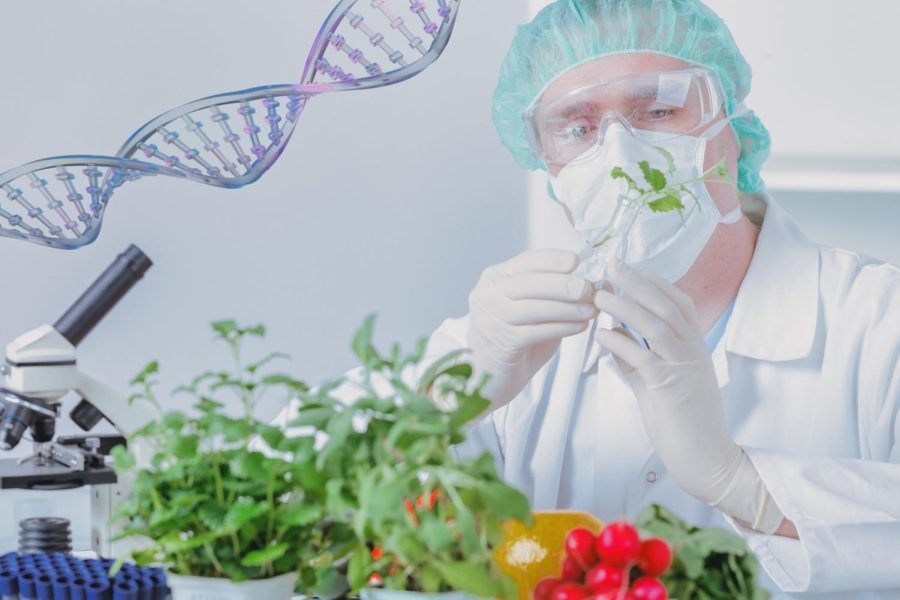Look Both Ways: Are GMOs good for us?
Getty Images
A researcher working on creating genetically modified organisms in a lab. Senior columnist Angelina Padilla-Tompkins and columnist Lucy Atkinson look at the pros and cons of having GMOs in our plants and foods.
Genetically modified organisms (GMOs) are foods, animals and microorganisms that are changed genetically. It has been a long debate about whether GMOs are good or not, and many countries have even created laws to reflect those debates.
GMOs are not good:
Foods that contain GMOs are becoming too common in the United States, but what many aren’t aware of is the hazard they can present to human health.
“The results of most studies with GM foods indicate that they may cause some common toxic effects such as hepatic, pancreatic, renal, or reproductive effects and may alter the hematological, biochemical, and immunologic parameters,” according to the National Library of Medicine.
Many countries have even banned GMOs World Population Review reported.
Within the European Union, GMOs have been banned in France, Germany, Austria, Greece, Hungary, the Netherlands, Latvia, Lithuania, Luxembourg, Bulgaria, Poland, Denmark, Malta, Slovenia, Italy and Croatia.
In Africa, Algeria and Madagascar have both banned GMOs.
Additionally, Turkey, Kyrgyzstan, Bhutan, Saudi Arabia, Belize, Ecuador, Peru, and Venezuela have bans on GMOs.
Unfortunately, the majority of crops in the United States are genetically modified.
“Many GMO crops are used to make ingredients that Americans eat such as cornstarch, corn syrup, corn oil, soybean oil, canola oil, or granulated sugar. A few fresh fruit and vegetables are available in GMO varieties, including potatoes, summer squash, apples, papayas, and pink pineapples” according to the Food and Drug Administration.
GMOs might be able to help farmers produce more products faster, but it is worth the cost of our health?
Fruits, vegetables and other foods we ingest have natural nutrients, we should not be changing them.
GMOs can be good:
Many today fear GMOs but don’t realize they are already present in much of the food we consume.
For instance, according to the U.S. Food and Drug Administration, a majority of the U.S. soybean and corn crops are genetically modified, making their way into sugars, syrups and oils.
While we don’t have sufficient evidence that GMOs are actively creating health concerns, we do have evidence that they hold huge potential for increasing sustainability in the agricultural sector. As the human population increases and climate change progresses, relying on sustainable food systems will be necessary to feed future generations, the U.N. Department of Economic and Social Affairs acknowledged.
GMOs present real solutions to this problem.
Some crops, for instance, have been modified to produce a protein that is toxic to insect pests. The crops are not, however, toxic to helpful pollinators (such as bees and butterflies) like the pesticides generally used in crop production. This trait both saves farmers money and protects the environment from the negative impact of aggressive pesticide-use.
Other crops have been changed to improve weather or disease resistance, increasing breeding efficiency and therefore increasing annual yield. When the agricultural sector is able to produce greater yields, we conserve biodiversity and preserve healthy soils, reaping ecological benefits.
More food means more people are fed, and the healthier the quality of our soil, the longer we can produce food in that soil. GMOs are presenting promising advancements and they will only become more important as our population grows.














